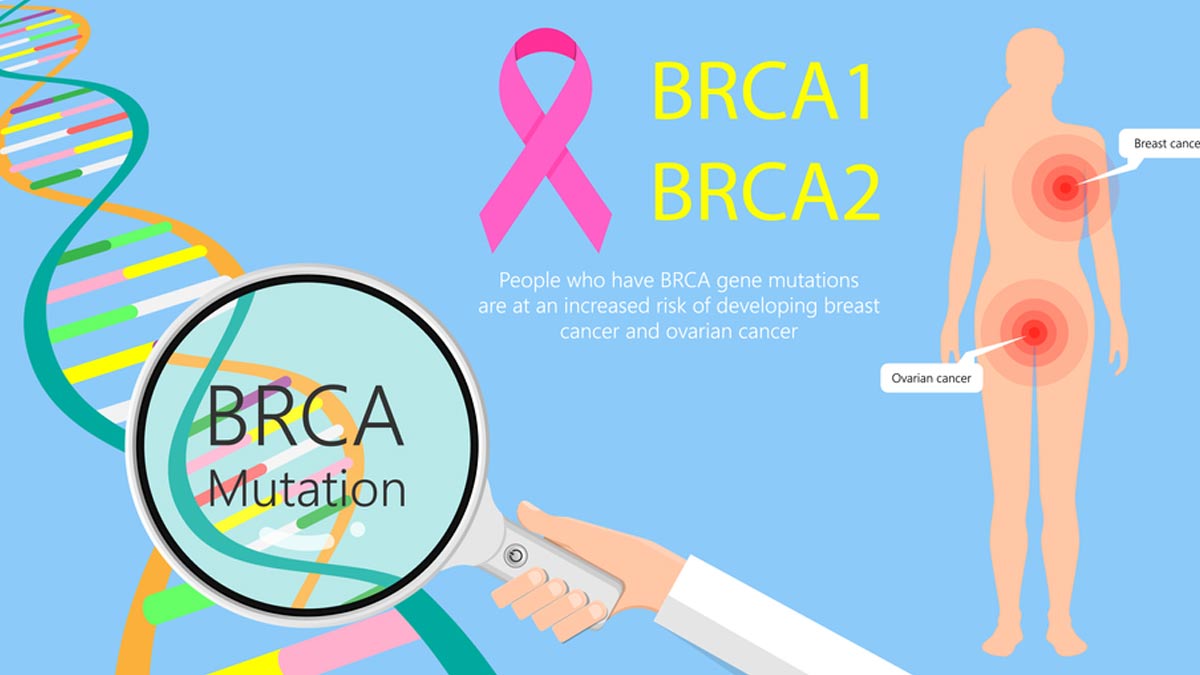
Number of breast and ovarian cancer cases have significantly soared high in the last few decades. Due to this rise, demand for tests like BRCA 1 and 2 analysis has grown across the world including in India. These tests are done to understand the probability of you bearing the risk of developing cancer in future.
Table of Content:-
According to Dr. Vinay Bhatia, Head-Molecular Biology, R&D, Genomics, Cytogenetics, Molecular Biology and Genomics Department, Oncquest Labs, studies say that 10-15 percent of breast cancer patients have a family history of cancer.
“The BRCA gene test examines DNA changes that increase the risk of breast and ovarian cancer, using blood or saliva samples. These changes, called variants or mutations, can be harmful and increase the risk of cancer,” he said.
What is BRCA gene mutation?

“The BRCA gene test is a genetic test that examines changes in the BRCA1 and BRCA2 genes, as well as other genes that can increase the risk of breast and ovarian cancer. Genetic alterations, also known as mutations, can cause certain types of cancers,” Dr Bhatia said.
According to him, BRCA 1 & 2 gene analysis in India is limited to metros and tier 1 cities, but despite its small share in the $17 billion global genetic market, the Indian diagnostic sector is benefiting from newer technologies providing faster and more accurate results.
Who should take the tests?
Individuals with a family history of ovarian or breast cancer bear a high risk and BRCA 1 and 2 gene analysis can be beneficial for them.
“Depending on the patient's case and family history, a BRCA 1 Test or a BRCA 2 Test can be performed. BRCA 1 and an unrelated BRCA 2 are proteins associated with breast tissues that repair damaged DNA or destroy cells if damaged DNA cannot be repaired. Mutations in BRCA can increase the susceptibility of the carrier of the mutant gene to breast and other cancers, particularly ovarian cancer,” Dr Bhatia said.
Dr Bhatia suggests that post-puberty women with a strong family history should be tested by gynaecologists.
BRCA diagnosis and possible outcomes

Although BRCA mutations are generally associated with breast or ovarian cancer, they can also cause other cancers. They can cause particularly in the abdominal or thoracic cavities. Dr Bhatia said that women with a BRCA mutation might bear a high risk of developing pancreatic cancer.
It is not necessary that you will get cancer if you are positive for any of the two BRCA mutations. You might bear higher chances of developing the disease but it is not guaranteed that it will develop.
“A healthcare team develops a cancer screening plan based on the patient’s health condition, which may include different tests, more frequent screenings, or alternative treatments. Also, factors such as age, medical history, past treatments, and personal preferences can also influence the results of these tests,” Dr Bhatia said.
Also read: Breast Cancer Becoming A More Common Diagnosis In Young Women: This Can Be The Reason
Measures To Be Taken If BRCA Positive
Dr Bhatia helped in putting down some measures that can be taken if you are positive to the gene mutation.
“If the patient is prone to breast cancer, regular self-examination, followed by clinical examinations every six months to a year, annual mammography, and annual MRI are strictly recommended. For ovarian cancer, regular oral contraceptives can reduce risk, and for those with children, salpingo-oophorectomy can be considered. Transvaginal ultrasound and CA-125 blood tests may also be considered after the doctor’s advice,” Dr Bhatia advised.
Bottomline
Dr Bhatia revealed that researchers are discovering new gene changes that could affect the risk of cancer. Many of the variants of uncertain significance are classified as positive or negative. According to the doctor, health care professionals should stay informed about these kinds of changes. As genetic testing is the focal area of research, if the test was done over five years ago, the latest tests must be recommended. Notably, if an individual’s family history changes, additional testing may be needed.
Also watch this video
How we keep this article up to date:
We work with experts and keep a close eye on the latest in health and wellness. Whenever there is a new research or helpful information, we update our articles with accurate and useful advice.
Current Version